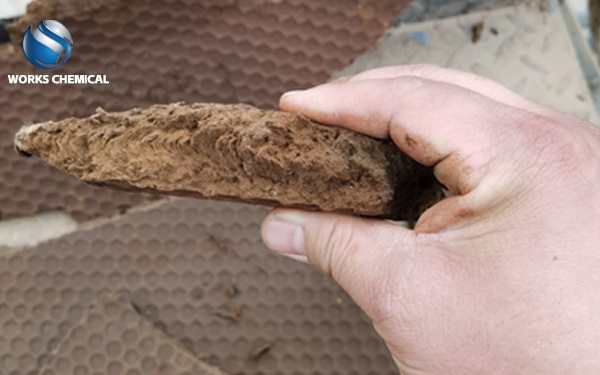
he high water content of sludge has always been a major problem in sludge treatment. Generally speaking, too high sludge moisture content has a great impact on the treatment efficiency of sludge dewatering equipment. Traditional inorganic flocculants, such as lime, iron salt, aluminum salt, etc., may cause the increase of filtrate salt content, the change of water conductivity and other problems. In order to solve the limitations of traditional flocculants, a new type of sludge dehydrating agent came into being.

Sludge dewatering agent is a chemical agent specially used to improve the efficiency of sludge dewatering, whose purpose is to chemically change the physical and chemical characteristics of the sludge, so as to promote the separation of water from the sludge and achieve sludge reduction. The commonly used sludge dehydrating agents mainly include the following categories: efficient organic polymer flocculants, such as PAM; Inorganic flocculant, polyaluminum, polyiron, etc.; The sludge characteristics can be improved by means of electric neutralization and bridging to reduce the moisture content.
New or special functional sludge dehydrating agents contain a variety of components, such as inorganic compounds, sludge surface structure modifier, degreaser, wall breaking agent, sludge surface treatment agent and sludge stripping agent. These compound agents can change the surface properties of the sludge more effectively, reduce the solid surface load of the sludge, reduce the specific surface area of the sludge, destroy the bacterial structure, and thus accelerate the dehydration process.
The advantages of using sludge dehydrants include:
Significantly reduce the moisture content of the sludge, and some can even be reduced from more than 90% to 40%-60%.
Improve dewatering efficiency and reduce energy consumption and processing time of dewatering equipment.
Improve the dewatering performance of the sludge, making the dehydrated mud cake easier to further treatment and disposal, such as drying or incineration.
It has a wide range of applications and has good adaptability to different types of sludge and water quality.